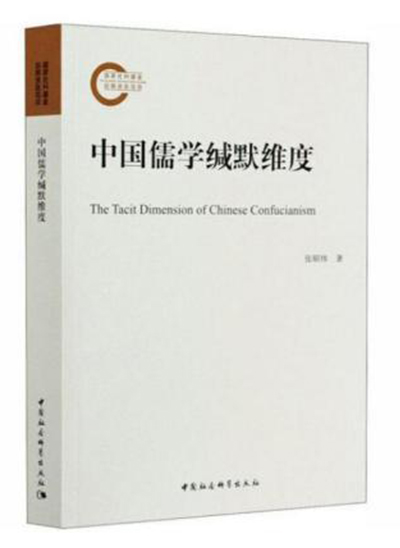A tacit dimension of traditional Chinese philosophy

The Tacit Dimension of Chinese Confucianism
Traditional Chinese philosophy is, in essence, about being human. Beneath its explicit linguistic expressions lies a colossal content base to be comprehended through practices and cultivation. From its inception, it was likely to encounter situations in which only the “tip of the iceberg” was noticed, while the more tacit dimensions remained overlooked, potentially falling into “fragmentary hearsay knowledge.”
Since modern times, this has directly given rise to a crisis of the “legitimacy of Chinese philosophy.” There seems to be a natural barrier between tacit dimensions and philosophy. The nature of tacit dimensions lies in its taciturnity, while philosophy, as rational wisdom, is inherently inextricably linked to explicit discourses. Although rational wisdom does not exclude itself from inquiring into tacit dimensions, people are easily induced to believe that only linguistically expressible rational content can become philosophy. The resultant narcissism of reason tends to straightforwardly exclude the dimension from the scope of concern.
Under the Western academic discourse system, the demand to interpret traditional Chinese thought as Chinese philosophy not only leads the tacit dimension to an unwanted desert, but also makes explicit texts an object that scholars either ignore or attempt by every means to explain from explicit levels only. This situation brings about a paradox: the more successful traditional Chinese thought is at being “philosophy,” the weaker it appears, since the “success” rests precisely on obscuring its own properties.
The Tacit Dimension of Chinese Confucianism, by Zhang Zhaowei, a professor from the Research Center of Chinese Traditional Culture at Wuhan University, explores the tacit dimension of Confucianism, exploiting a new realm for the study of Chinese intellectual history since modern times and attempting to forge a certain basis for traditional Chinese philosophy. British philosopher Michael Polanyi was famed for the theory of tacit knowledge, which remains knowledge in a general sense. Zhang further examines the Confucian tacit dimension by incorporating the aspects of spirituality, linguistics, depth psychology, and personality shaping, enabling a better understanding of taciturnity.
To fundamentally change philosophically rational narcissism, revealing the existence and richness of taciturnity is merely a basic task, far from the whole. Praiseworthily, the author does not replace “rational narcissism” with “irrational narcissism.” While systematically teasing out the tacit dimension of traditional Chinese Confucianism, Zhang makes efforts to dialogue with Western philosophy by this. Contemporary Chinese philosophy can make a great contribution to world philosophy by philosophizing the tacit dimension of traditional Confucianism, uncovering rather than covering the dimension amid the philosophization process, and revealing the philosophical significance of taciturnity from rational thinking.
Peimin Ni is a professor from the Grand Valley State University in the United States.
Edited by YANG LANLAN

 PRINT
PRINT CLOSE
CLOSE